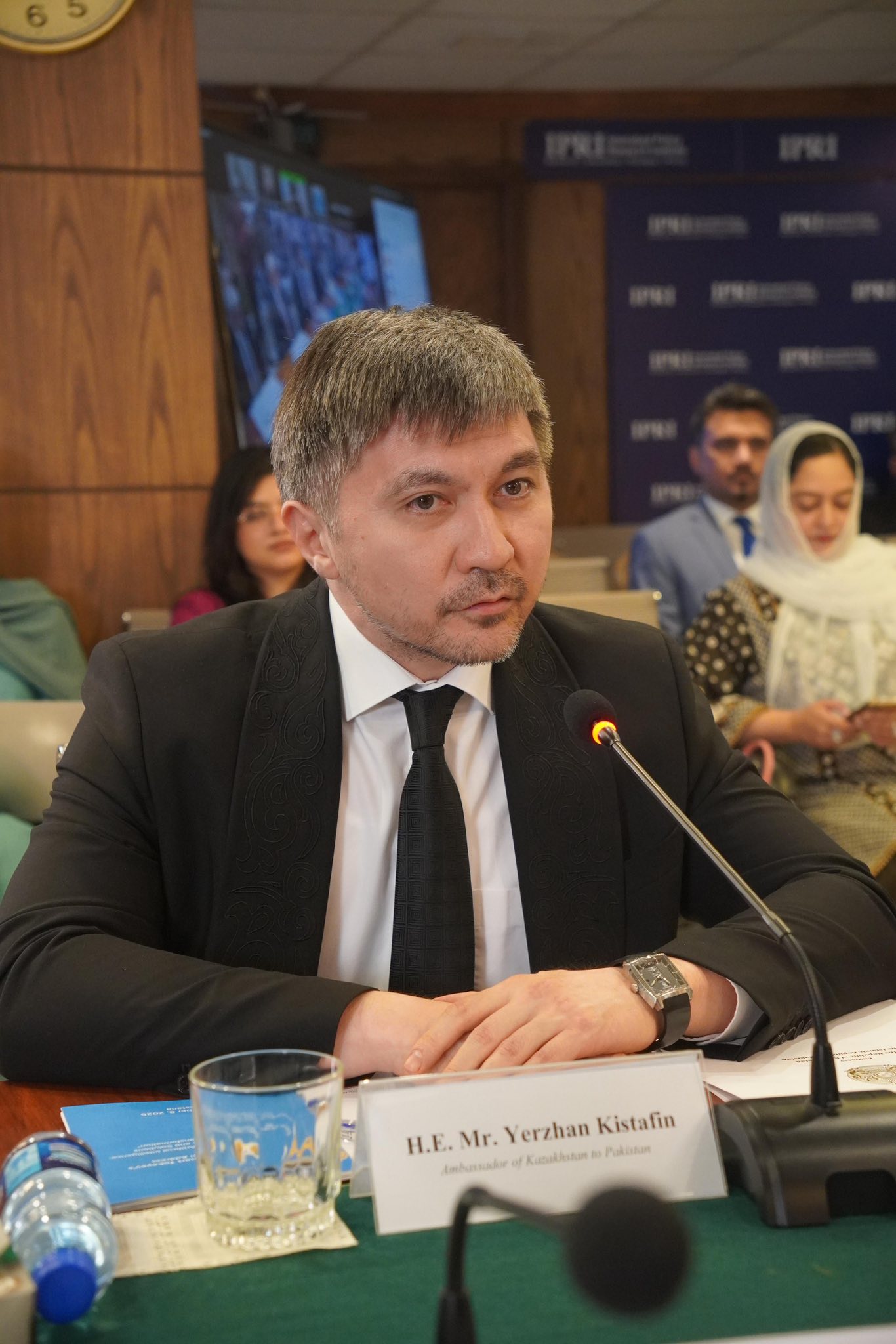Reforms and Foreign Policy Course of Kazakhstan Discussed in Islamabad

Islamabad, October 7, 2025 – The Islamabad Policy Research Institute (IPRI), one of Pakistan’s most prominent think tanks, hosted a Round Table discussion on the topic “Charting the Future Together: Kazakhstan-Pakistan Relations”.
The event brought together representatives of leading think tanks, the Ministry of Foreign Affairs of the Islamic Republic of Pakistan, the Ministry of Information Technology and Telecommunications of Pakistan, as well as major media outlets.
Chief guests included Pakistan’s Federal Minister for Information Technology and Telecommunication, Shaza Fatima Khawaja, and former Minister for Information and Broadcasting, former Chairman of the Senate Defence Committee, Senator Mushahid Hussain Syed.
From the kazakh side, participants included experts from the Kazakhstan Institute for Strategic Studies under the President of the Republic of Kazakhstan, Foreign Policy Research Institute under the Ministry of Foreign Affairs of Kazakhstan, and the International Centre for Interfaith and Interreligious Dialogue, joined the session in an online format.
From the Pakistani side, speakers represented the Ministry of Foreign Affairs of Pakistan, IPRI, and the Pakistan Research Center for a Community with Shared Future.
During the discussion, participants exchanged views on the key points of the Address of President Kassym-Jomart Tokayev to the People of Kazakhstan, Kazakhstan’s foreign policy priorities, the outcomes of the VIII Congress of Leaders of World and Traditional Religions, and the dynamics of the bilateral Kazakhstan-Pakistan relations.
In his opening remarks, Ambassador Yerzhan Kistafin informed participants about the main areas of the bilateral agenda, highlighting cooperation in political, trade and economic, and cultural-humanitarian spheres, and outlined the major events held and planned in 2025.
Speakers highly commended the ongoing reforms in Kazakhstan, noting in particular the country’s focus on the development of artificial intelligence, its ambition to become a regional transport and logistics hub, and, in this context, the importance of strengthening cooperation with Pakistan.
In particular, Director General of CARs & ECO Division at the Ministry of Foreign Affairs of Pakistan Hasan Ali Zaigham emphasized that Kazakhstan is a strategic partner for Pakistan in the region. He expressed Islamabad’s strong support for the Kazakhstan-Turkmenistan-Afghanistan-Pakistan railway project and noted the Pakistani leadership’s keen interest in bringing bilateral cooperation to a qualitatively new level.
Regarding the religious summit held in Astana, participants of the Round Table unanimously expressed their support for this initiative, highlighting its relevance amid the ongoing interfaith tensions in the global arena.
When discussing Kazakhstan’s foreign policy course, speakers underlined its pragmatic and balanced nature, aimed at developing and strengthening constructive and mutually beneficial relations with foreign states and international organizations.